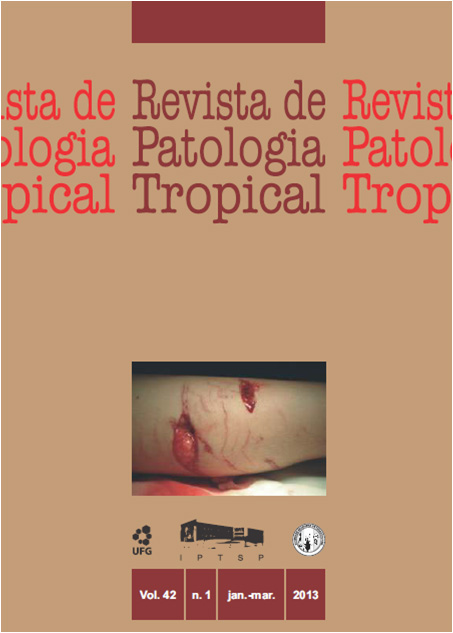EVALUATION OF THE DISK DIFFUSION METHOD FOR TESTING FLUCONAZOLE SUSCEPTIBILITY OF Cryptococcus laurentii
DOI:
https://doi.org/10.5216/rpt.v42i1.23592Keywords:
Cryptococcus laurentii, Antifungal testing, Disk diffusion, Fluconazole, Minimal Fungicidal Concentration.Abstract
Cryptococcus laurentii is a rare human pathogen ubiquitous in nature. This study aims to evaluate the disk diffusion method for testing fluconazole susceptibility of C. laurentii, and moreover, to assess the minimal fungicidal concentration (MFC) by the broth microdilution method. Eleven isolates of environmental C. laurentii complex were employed to determine the susceptibility to fluconazole by disk diffusion and by broth microdilution methods according to CLSI (Clinical and Laboratory Standards Institute) guidelines and to determine the MFC by broth microdilution technique. Thedisk diffusion method indicated four susceptible, three susceptible-dose dependent and four resistant isolates while by the broth microdilution method 10 isolates were defined as susceptible and one susceptible-dose dependent. The agreement between the methods was 36.4%. One isolate showed MFC of 8 ?g/mL and two of 64 ?g/mL. Although only a small number of isolates were studied, results suggested that the disk diffusion method was not adequate to determine in vitro susceptibility to fluconazole for C. laurentii isolates, and that fluconazole, while it is a fungistatic antifungal, may present in vitro fungicidal activity for some isolates.
Downloads
Downloads
How to Cite
Issue
Section
License
The manuscript submission must be accompanied by a letter signed by all authors stating the full name and email address, confirming that the material has not been published or is under consideration for publication elsewhere, and agreeing to transfer copyright in all media and formats for Journal of Tropical Pathology. The authors will not be paid for published articles. They are solely responsible for the content of those articles, even if the Editor holds the right to adjust them to the norms of the journal.
The reviewers will not be paid for the peer review process.

